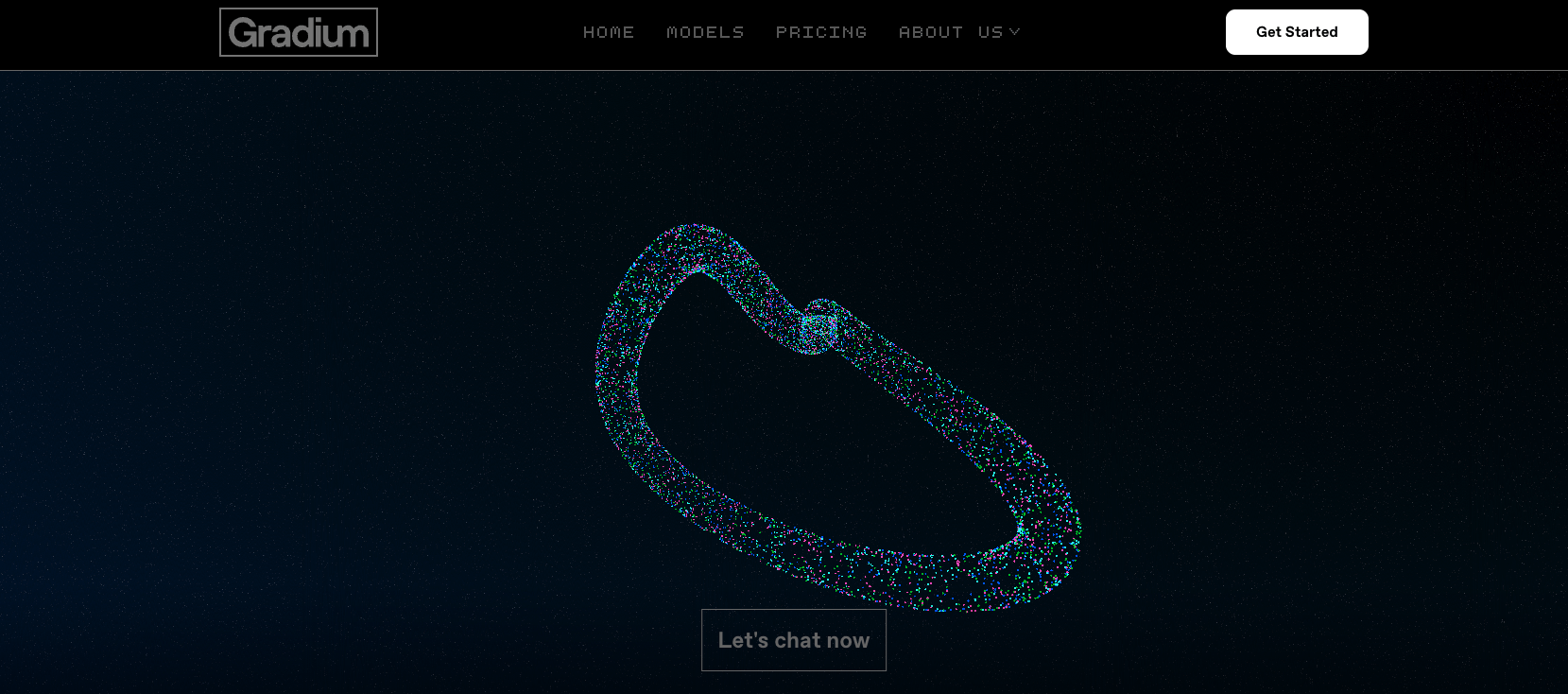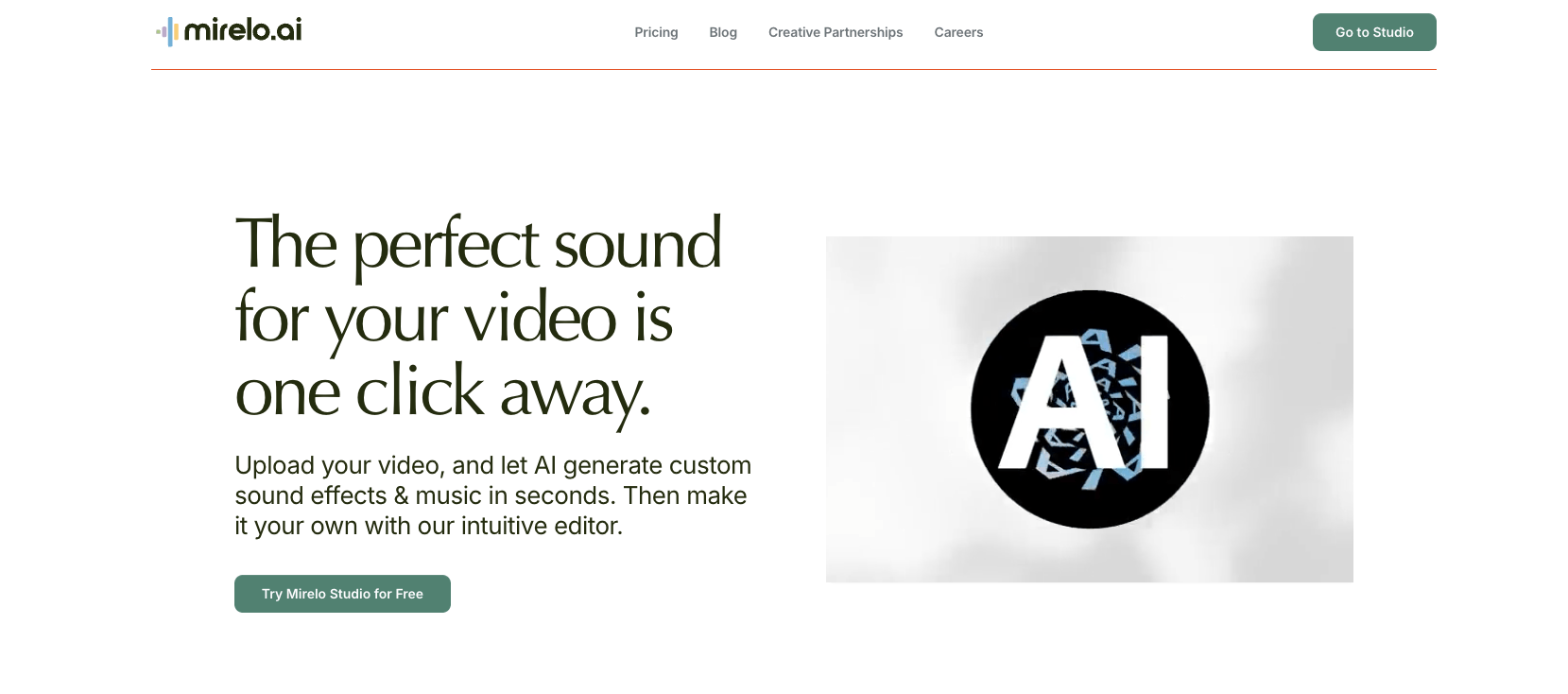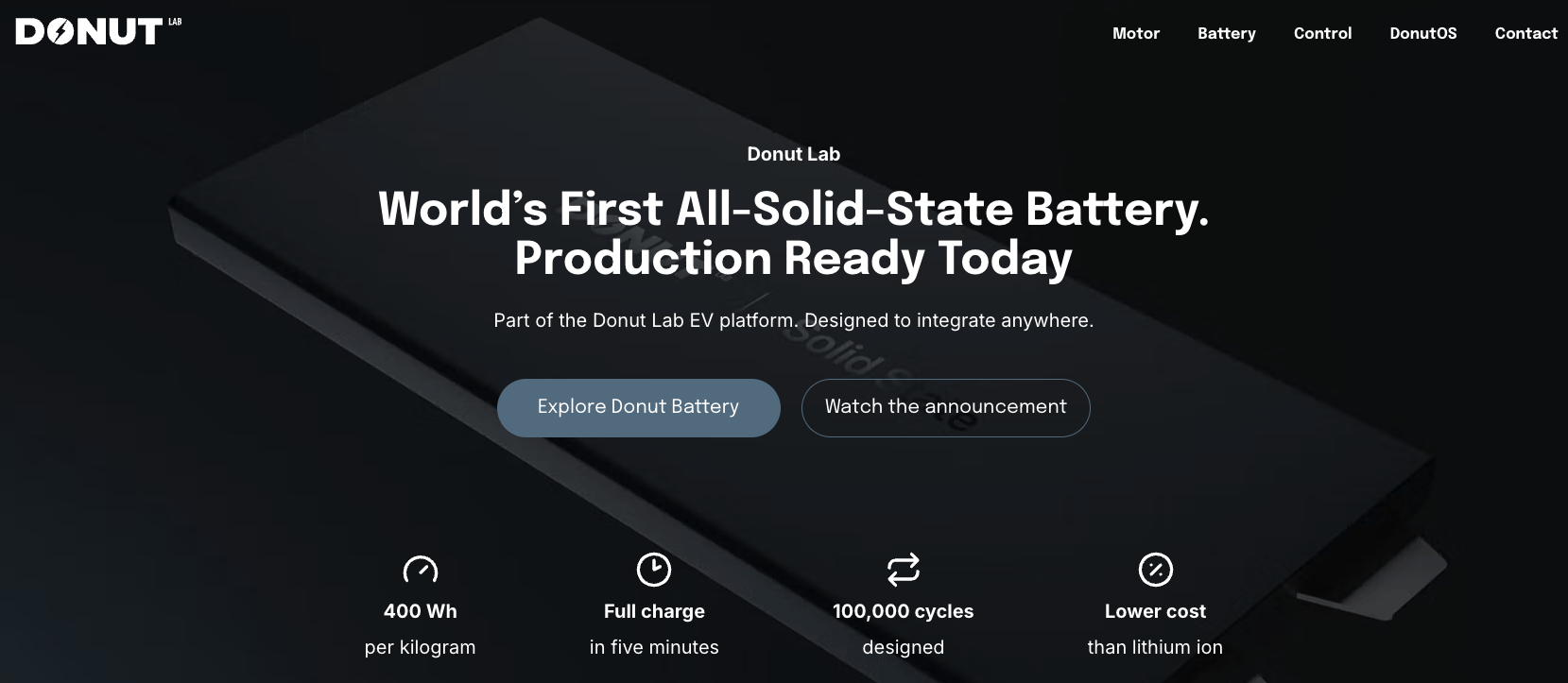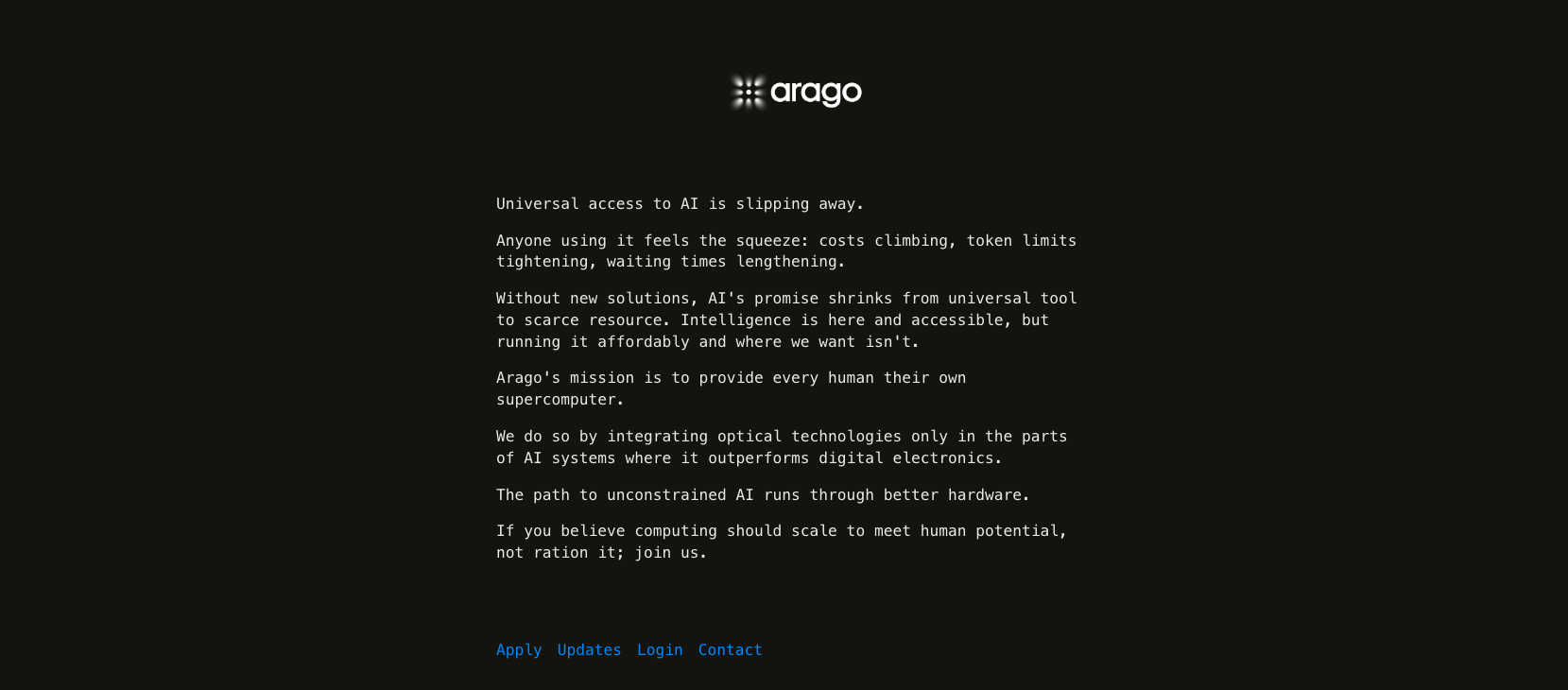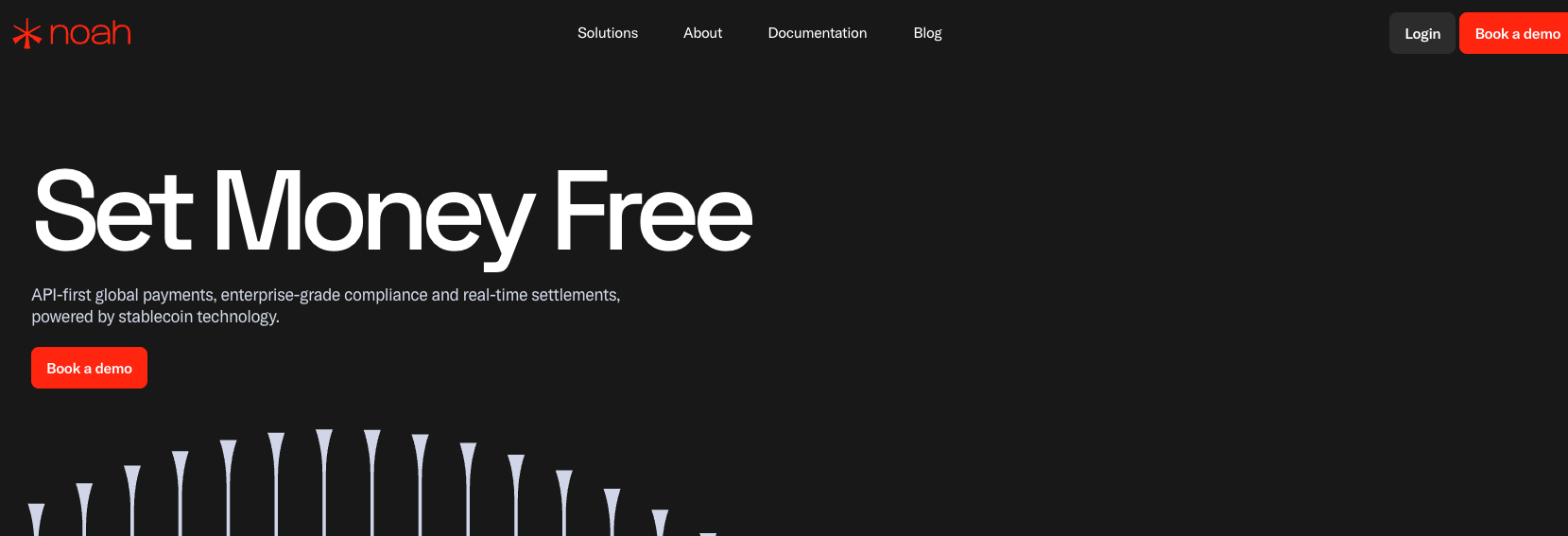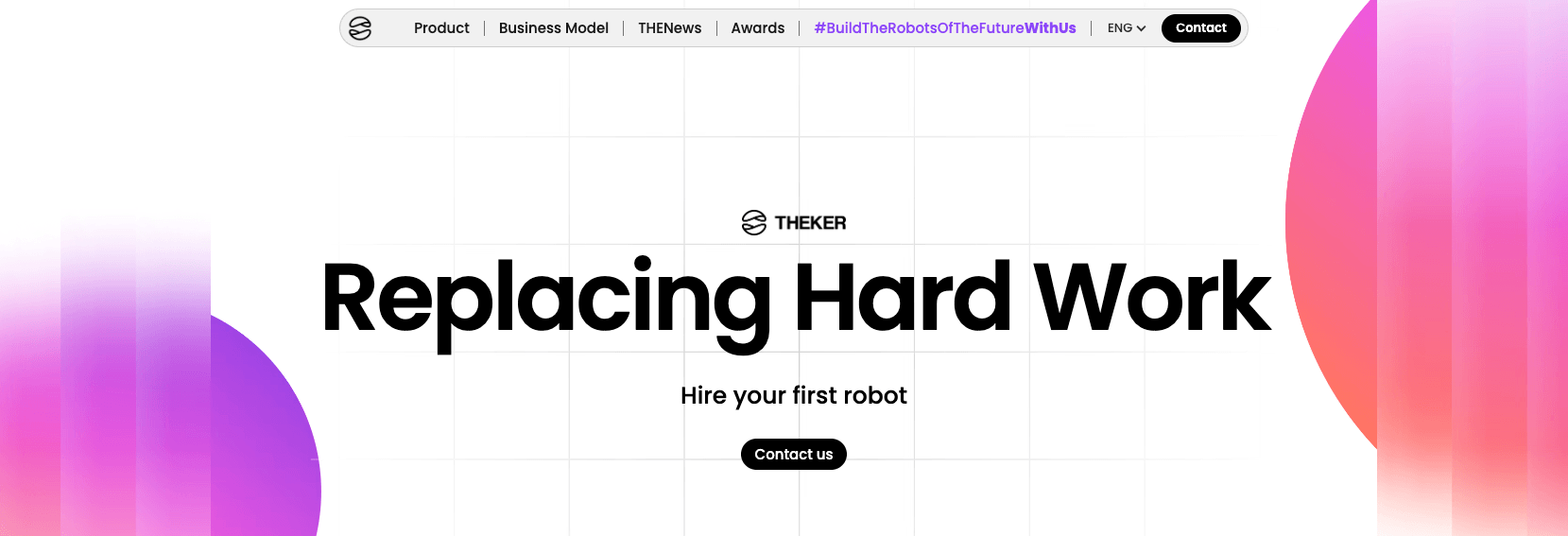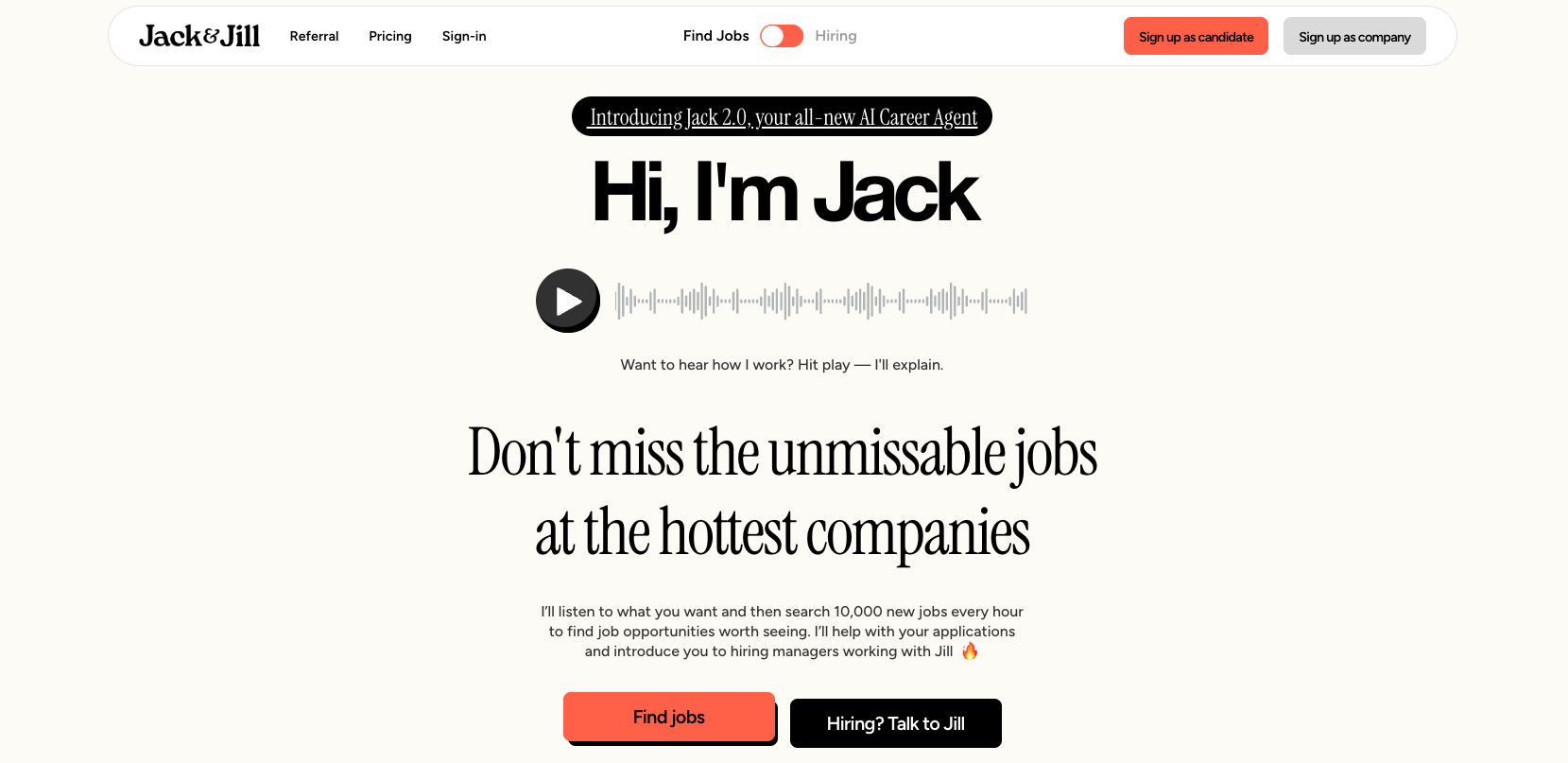Switch Dataset:
Startup News
We are collecting the most relevant tech news and provide you with a handy archive. Use the search to find mentions of your city, accelerator or favorite startup in the last 1,000 news items. If you’d like to do a more thorough search, please contact us for help.
Search for any keyword to filter the database with >10,000 news articles
Filter
Filter search
Results
| id | date | title | slug | Date | link | content | created_at | feed_id |
|---|---|---|---|---|---|---|---|---|
| 52,118 | 24/01/2026 10:14 PM | ICE Asks Companies About ‘Ad Tech and Big Data’ Tools It Could Use in Investigations | ice-asks-companies-about-ad-tech-and-big-data-tools-it-could-use-in-investigations | 24/01/2026 | A new federal filing from ICE demonstrates how commercial tools are increasingly being considered by the government for law enforcement and surveillance. | 24/01/2026 11:10 PM | 4 | |
| 52,117 | 24/01/2026 04:10 PM | Mews raises €255M to accelerate AI and automation in hospitality | mews-raises-euro255m-to-accelerate-ai-and-automation-in-hospitality | 24/01/2026 |  Amsterdam-based hospitality tech platform Mews has raised €255 million (about $300 million) in a Series D funding round as it pushes deeper into automation and AI-powered workflows for hotels around the world. The round was led by EQT Growth with new participation from Atomico and HarbourVest Partners, alongside existing backers including Kinnevik, Battery Ventures and Tiger Global. The investment values the company at roughly $2.5 billion. Founded in 2012 by Richard Valtr and Matt Welle, Mews builds a cloud-native “operating system” for hotels software that ties together reservations, check-ins, housekeeping, payments and more in one platform. Its technology is designed… This story continues at The Next Web |
24/01/2026 05:10 PM | 3 | |
| 52,116 | 24/01/2026 04:00 PM | How PopWheels helped a food cart ditch generators for e-bike batteries | how-popwheels-helped-a-food-cart-ditch-generators-for-e-bike-batteries | 24/01/2026 | 24/01/2026 04:10 PM | 7 | ||
| 52,115 | 23/01/2026 09:13 PM | The Rippling/Deel corporate spying scandal may have taken another wild turn | the-ripplingdeel-corporate-spying-scandal-may-have-taken-another-wild-turn | 23/01/2026 | 23/01/2026 10:10 PM | 7 | ||
| 52,114 | 23/01/2026 08:00 PM | How did Davos turn into a tech conference? | how-did-davos-turn-into-a-tech-conference | 23/01/2026 | 23/01/2026 08:10 PM | 7 | ||
| 52,111 | 23/01/2026 04:35 PM | Weekly funding round-up! All of the European startup funding rounds we tracked this week (Jan. 19-23) | weekly-funding-round-up-all-of-the-european-startup-funding-rounds-we-tracked-this-week-jan-19-23 | 23/01/2026 | This article is visible for CLUB members only. If you are already a member but don’t see the content of this article, please login here. If you’re not a CLUB member yet, but you’d like to read members-only content like this one, have unrestricted access to the site and benefit from many additional perks, you can sign up here. The post Weekly funding round-up! All of the European startup funding rounds we tracked this week (Jan. 19-23) appeared first on EU-Startups. |
23/01/2026 05:10 PM | 6 | |
| 52,112 | 23/01/2026 04:27 PM | Oslo-based Altek AI secures €423k to expand autonomous guest communication for hotels across the Nordics | oslo-based-altek-ai-secures-euro423k-to-expand-autonomous-guest-communication-for-hotels-across-the-nordics | 23/01/2026 | Norwegian AI hospitality startup Altek AI has raised €423k ($500k) in a pre-Seed round in order to deepen integrations with hotel systems (including PMS and booking engines), expand its autonomous workflows across more channels, and accelerate growth across Scandinavia and Europe. The round was led by StartupLab; an incubator, accelerator, and early stage investor for Norwegian technology startups. Altek AI was among the startups selected to take part in the FutureTravel Summit 2025 (a former sister brand to EU-Startups), an industry event that brings together early-stage travel and hospitality technology companies to pitch their solutions to investors and corporate stakeholders. “We’re not building another tool that just helps staff write replies faster,” said co-founder Jon-Fredrik ‘Joffen’ Hopland. “We’re building AI agents that can handle a large part of guest communication end-to-end and, where possible, act inside hotel systems. We’re building digital employees.” Recent EU-Startups coverage shows that Altek AI’s pre-Seed round sits within a wider but highly stratified flow of capital into European hospitality and AI-driven hotel operations in 2025–2026. At the large-cap end, Amsterdam-based Mews raised €255 million in a Series D this month to expand automation, payments and AI-enabled workflows across hotel operations, while Barcelona-based Amenitiz secured €38.9 million in Series B funding to accelerate AI-led product development for independent hotels. Earlier-stage rounds point to more focused investments in guest communication and operational automation: Vienna-based chatlyn raised €8 million to build an AI-driven guest communication hub, London-based Inntelo AI closed a pre-Seed round of more than €576k for its AI concierge platform, and Amsterdam-based Toppi secured close to €1 million to scale AI solutions for hospitality businesses. In parallel, broader tech-enabled hospitality models have also attracted substantial capital, such as Madrid-based Room00 Group, which announced up to €400 million to expand its urban hospitality platform across Europe. Against this backdrop, Altek AI’s pre-Seed round is in line with other sub-€1 million raises focused on automating guest communication through deeper system integrations, while the overall funding disclosed across these deals exceeds approximately €700 million. “Hospitality has become extremely complex, and guest communication is still largely manual,” said co-founder Kristoffer S. Pedersen. “Guests don’t care whether they contact a hotel via email, web chat or Instagram – they expect fast, accurate answers and that the hotel knows who they are.” Founded in 2024, Altek AI is building what it describes as an AI operating layer for hotels: autonomous AI agents that handle guest communication across email, web chat, messaging, social channels and phone. The company began with direct operator research. Before incorporating, the founders interviewed multiple hotels to map where guest communication breaks down in day-to-day operations. That led to a pilot project in early 2024 with a spa resort outside Oslo, where the team built and tested four different AI solutions in live operations. The pilot validated that hotels adopt automation quickly when it removes repetitive work – especially if it doesn’t add another system staff have to manage. The company says it now has 37 hotels live across Norway, Sweden and Denmark. As of January 2026, the company is reporting around €119k ($140k) ARR and ~26% month-over-month growth. Among its users is The Well, a large spa resort in Norway. Altek AI says its agents have handled 23,000+ messages and 16,000+ conversations over the past year, helping reduce response times on routine guest inquiries and speed up handling of more complex requests. “Altek AI is tackling a global operational challenge with the ambition to build a new infrastructure layer for hotels,” said Jørgen Veiby, Investment Manager at StartupLab. “The team has shown strong execution and an ability to win paying customers early.” Hotels are facing a perfect storm: more communication channels, higher guest expectations, and staffing constraints. Altek AI argues that guest communication has become an overlooked operational cost centre. Based on figures from one customer, a mid-sized hotel can handle about 87,000 guest inquiries per year through email and phone alone. At an average of roughly six minutes per inquiry, that equates to more than 8,700 hours annually – before factoring in lost upsell opportunities and service issues caused by slow responses. Unlike single-channel chatbots or ‘assistive’ AI tools, Altek AI outlines that their approach focuses on autonomous execution through deep integrations – so agents can resolve requests with context, reduce handoffs, and improve personalisation over time. Altek AI plans to use the funds to deepen integrations with hotel systems, expand automation across the guest journey, and accelerate growth beyond the Nordics. The post Oslo-based Altek AI secures €423k to expand autonomous guest communication for hotels across the Nordics appeared first on EU-Startups. |
23/01/2026 05:10 PM | 6 | |
| 52,110 | 23/01/2026 04:23 PM | How Flippa Is Removing the Language Barrier from Global Deal-Making | how-flippa-is-removing-the-language-barrier-from-global-deal-making | 23/01/2026 |  For decades, access to high-quality deal flow and sophisticated M&A infrastructure has been largely designed for well-connected investors and industry giants. Small businesses and independent founders, particularly those operating outside English-speaking markets, may often find the barriers even higher. Language, geography, and limited access to networks could mean that opportunity stops at the border. Amidst this trend, Flippa, a platform for buying and selling digital businesses, is rewriting the script and dismantling those barriers. Under the leadership of CEO Blake Hutchison, the company has connected buyers and sellers across continents, linguistic differences, and price points, closing deals from $100,000 up… This story continues at The Next Web |
23/01/2026 05:10 PM | 3 | |
| 52,113 | 23/01/2026 04:00 PM | This startup will send 1,000 people’s ashes to space — affordably — in 2027 | this-startup-will-send-1000-peoples-ashes-to-space-affordably-in-2027 | 23/01/2026 | 23/01/2026 05:10 PM | 7 | ||
| 52,106 | 23/01/2026 04:00 PM | The Math on AI Agents Doesn’t Add Up | the-math-on-ai-agents-doesnt-add-up | 23/01/2026 | A research paper suggests AI agents are mathematically doomed to fail. The industry doesn’t agree. | 23/01/2026 04:10 PM | 4 | |
| 52,108 | 23/01/2026 03:57 PM | AI CEOs transformed Davos into a tech conference | ai-ceos-transformed-davos-into-a-tech-conference | 23/01/2026 | 23/01/2026 04:10 PM | 7 | ||
| 52,109 | 23/01/2026 03:30 PM | OpenAI chief Sam Altman plans India visit as AI leaders converge in New Delhi: sources | openai-chief-sam-altman-plans-india-visit-as-ai-leaders-converge-in-new-delhi-sources | 23/01/2026 | 23/01/2026 04:10 PM | 7 | ||
| 52,105 | 23/01/2026 03:18 PM | Cloover secures over $1.2B, EU Inc launched at Davos, and the Danish fintech boss who says “no” a lot | cloover-secures-over-dollar12b-eu-inc-launched-at-davos-and-the-danish-fintech-boss-who-says-no-a-lot | 23/01/2026 | This week, we tracked more than 70 tech funding deals worth over €2.7 billion, and over 10 exits, M&A transactions, rumours, and related news stories across Europe. Alongside the week’s top funding rounds, we’ve also curated the most important industry stories you need to know. This week saw the launch of EU Inc at the World Economic Forum in Davos in response to months of lobbying and a policy movement backed by over 22,000 signatories, including Europe's leading founders, investors, and the broader startup community. Its co-initiator, Andreas Klinger, also launched his third investment fund at PROTOTYPE to back startups in robotics, automation, and physical or frontier AI. If email is more your thing, you can always subscribe to our newsletter and receive a more robust version of this round-up delivered to your inbox. Either way, let's get you up to speed. ? Notable and big funding rounds?? Cloover secures over $1.2B to develop an AI operating system for energy independence ?? Accounting software platform Pennylane raises $200M ?? Language learning edtech Preply hits $1.2B valuation with $150M Series D ???? Noteworthy acquisitions and mergers?? Tourmanagement BV acquires Beatswitch in live music software deal ??. AB Tasty merges with its Indian rival VWO ?? The American company ClickHouse is acquiring the Berlin-based startup Langfuse ??. IN4 Group makes swoop for Midlands apprenticeship provider ? Interesting moves from investors? Vanagon Ventures closes €20M Fund I to back deeptech startups ? PROTOTYPE Capital launches Fund III and hits 5.6x returns by backing "crazy ideas" ? Ananda Impact Ventures secures €73M first close for fifth Core Impact Fund ? Vi Partners marks 25 years with first close of €161M new venture fund ??. Metavallon VC launches €5m “Brain Gain” fund to reverse Greece’s tech talent exodus ?️ In other (important) news?? The European Commission launches EU Inc., the long-awaited ‘28th regime’ for startups ??. Tech “trailblazers” to get visa reimbursement fees, as government says Britain is "haven of stability" for startups ??. The Estonian Startup Awards mark a milestone night for Estonia’s startup ecosystem ? Recommended reads and listens??. Profile: The Danish fintech boss who says “no” a lot ??. Building a European digital stack: The alternatives to US big tech you should know ⚡.Soldera’s 10x growth story: building the Stripe for renewable energy ? European tech startups to watch?? Medtech Cancilico closes €2.5M round to advance AI in oncology ?? Anzen Industries raises $2.2M for chemical production innovation ?? Allocation Strategy secured £1.6M to advance asset allocation technology ?? Lovinn receives €300,000 investment |
23/01/2026 04:10 PM | 1 | |
| 52,107 | 23/01/2026 03:00 PM | Agentic AI: Is Europe ready to scale it safely? | agentic-ai-is-europe-ready-to-scale-it-safely | 23/01/2026 | Artificial intelligence is increasingly moving beyond single-task tools towards systems that can operate with a higher degree of autonomy. One of the most significant developments in this evolution is agentic AI, a new generation of AI systems designed to pursue goals, make decisions and carry out sequences of actions across multiple tools and data sources with limited human intervention. This article explores what agentic AI is, why it matters for organisations and policymakers, and how well Europe is positioned to adopt it at scale. Drawing on a new report by the StepUp StartUps Initiative, it examines Europe’s strengths, the structural challenges slowing deployment, and the policy and investment measures needed to support safe, large-scale adoption. The report shows that while Europe benefits from strong AI talent, a growing investment base and a regulatory framework focused on trust and accountability, significant gaps remain that could limit competitiveness if left unaddressed. From isolated automation to autonomous systemsAgentic AI represents a step change in how AI systems operate. Unlike traditional models that generate outputs based on predefined inputs, agentic AI can perform sequences of actions across interconnected tools and data sources. These systems are able to break down a goal, identify the required steps, execute them autonomously and refine their behaviour through feedback. This capability is beginning to reshape sectors where efficiency, accuracy and responsiveness are critical. Early applications can already be seen across public administration, financial services and healthcare, where complex workflows and decision-making processes stand to benefit most from autonomous systems. Investment momentum and Europe’s AI strengthsInvestment trends reflect the growing momentum behind agentic AI. Europe now allocates a higher share of venture capital to agentic AI than the United States, with France and Germany emerging as leading hubs. A broader network of innovation cities, including Amsterdam, Stockholm, Munich and Barcelona, is further strengthening Europe’s role in this space. Public funders play an important catalytic role within this ecosystem. Organisations such as the European Innovation Council and EIT Health help attract global investors while supporting experimentation and early-stage deployment of agentic AI technologies across Europe. Structural challenges slowing adoptionDespite these strong foundations, the report highlights three systemic barriers that continue to slow Europe’s ability to scale agentic AI. First, new regulatory and operational risks are emerging. Multi-step, autonomous actions can blur responsibility across systems and tools, challenging existing compliance frameworks and increasing the need for continuous traceability and meaningful human oversight. Second, fragmented data and technological dependence remain significant constraints. Only a small share of Europe’s industrial and public-sector data is currently reused, while reliance on non-European cloud providers and hardware limits technological sovereignty. Third, adoption capacity varies widely across Member States. Differences in digital readiness and supervisory resources, combined with risk-averse implementation cultures, often lead organisations to delay agentic AI pilots due to compliance concerns, reputational risk and the lack of established reference cases. Recommendations for scaling agentic AI in EuropeDrawing on its analysis, the report puts forward recommendations in three key areas. These include building clear and auditable control points to support safe deployment, accelerating the development of sovereign data and infrastructure foundations, and scaling adoption through flagship use cases in high-value sectors. The report also emphasises the importance of increasing European participation in agentic AI open-source initiatives and making greater use of public procurement instruments to support adoption. Policy context and next stepsIn October, the European Commission adopted the Apply AI Strategy, aimed at accelerating AI adoption across key industries, particularly among small and medium-sized enterprises. The strategy promotes an AI-first approach, encouraging organisations to consider AI solutions when making strategic and policy decisions. The Apply AI Strategy forms part of the wider AI Continent Action Plan, which sets Europe’s ambition to become a global leader in trustworthy AI. The full Agentic AI report is available to download and provides a detailed overview of the findings and policy recommendations for deploying agentic AI safely and at scale across Europe. The post Agentic AI: Is Europe ready to scale it safely? appeared first on EU-Startups. |
23/01/2026 04:10 PM | 6 | |
| 52,104 | 23/01/2026 03:00 PM | Only 1 week left (or until the first 500 passes are gone): The first TechCrunch Disrupt 2026 ticket discount is ending | only-1-week-left-or-until-the-first-500-passes-are-gone-the-first-techcrunch-disrupt-2026-ticket-discount-is-ending | 23/01/2026 | 23/01/2026 03:10 PM | 7 | ||
| 52,103 | 23/01/2026 02:16 PM | Apply now for your chance to join the finals of our big Pitch Competition at this year’s EU-Startups Summit | apply-now-for-your-chance-to-join-the-finals-of-our-big-pitch-competition-at-this-years-eu-startups-summit | 23/01/2026 | On May 7-8, Malta will once again transform into the heart of European innovation as it hosts the 2026 edition of the EU-Startups Summit. Bringing together around 2,500 founders, startup enthusiasts, investors, and corporates, this year’s edition is set to be one of the most ambitious and engaging in the event’s history. Alongside two stages, strong networking opportunities, and a buzzing exhibition hall, the EU-Startups Summit will also be the place where the finals of our big annual Pitch Competition take place. Fifteen of Europe’s most promising seed and pre-seed startups will be selected out of more than 1,600 applications to pitch on the main stage in front of a high-profile investor jury, and in front of our large audience. Applications are now open! The Prize PackageThe stakes are high! Valued at over €610k! Packed with funding opportunities and credits for great tools and services to supercharge your startup’s growth, this prize could truly transform your entrepreneurial journey. Let’s see what is in it:
Who can apply?
How to ParticipateYou can apply via this link. After that, we will carefully sift through all of the applications and hand-pick the finalists who will join us on the main stage at this year’s EU-Startups Summit on May 7-8 in Malta, where they will pitch for 3 minutes in front of our jury and a huge audience of investors, media, and startup enthusiasts. OUR EVENT SPONSORS
Malta Enterprise is Malta’s economic development agency, facilitating economic growth, investment, and innovation by offering a range of support services for local and foreign enterprises setting up a productive presence in Malta. As a key player in Malta’s economic landscape, it contributes to the nation’s prosperity by attracting investments, supporting businesses, and driving innovation, thereby reinforcing Malta’s position as an attractive destination for entrepreneurs and investors alike. Malta Enterprise actively cultivates a vibrant startup ecosystem, playing a pivotal role in fostering a conducive environment for startups and offering tailored support and incentives to empower emerging businesses. 
M. Demajo Group is a leading business player in Malta, with a successful history spanning 115 years. The Group’s growth and diversification have resulted in a wide coverage of business sectors through a commitment to long-term results. M. Demajo Group’s workforce is 500 strong, and their various activities have been developed through organic growth, acquisitions, partnerships, and startups. Its strong financial situation and ethical standards, its business reputation, and its renowned track record as a business partner are all key factors in its continued expansion. The post Apply now for your chance to join the finals of our big Pitch Competition at this year’s EU-Startups Summit appeared first on EU-Startups. |
23/01/2026 03:10 PM | 6 | |
| 52,100 | 23/01/2026 01:55 PM | CyberAlloy launches to unite Europe’s cyber defenders in a single trusted network | cyberalloy-launches-to-unite-europes-cyber-defenders-in-a-single-trusted-network | 23/01/2026 | This week saw the official launch of Cyber Alloy, an independent connecting network organisation designed to bring together companies, governments, knowledge institutions, venture capitalists, and security specialists in a unified effort to build a cyber-resilient ecosystem. It aims to transform the cybersecurity landscape by harnessing collective intelligence, shared insights, and collaborative innovation. In a world where digital threats evolve at an unprecedented pace, CyberAlloy exists to make organisations stronger together against digital threats by connecting knowledge, people, and technology within a trusted ecosystem. It aims to relieve CISOs and their teams by bringing together insight, expertise, and solutions, enabling them to act faster, better, and with greater confidence. By enabling collaboration where it currently stalls, fragmented efforts are transformed into collective defence. “ Cybersecurity is no longer an individual battle; it is a shared mission,” said Aernout Reijmer, CEO of CyberAlloy.
A defining feature of CyberAlloy is its role as a neutral, independent platform for trusted collaboration. “Data plays a crucial role in understanding and anticipating cyber threats,” says Lizzy Klijs, Trusted Data Advisor and Chief Data Officer at CyberAlloy.
By enabling organisations to share real-time threat intelligence and align people, processes and technology, CyberAlloy brings together the “good” network—making defence as fast, smart and scalable as attack. |
23/01/2026 02:10 PM | 1 | |
| 52,101 | 23/01/2026 01:10 PM | French fintech Pennylane raises €175M | french-fintech-pennylane-raises-euro175m | 23/01/2026 |  Paris-based fintech Pennylane has just pulled off one of Europe’s most noteworthy funding rounds of the year, announcing €175 million in new capital to accelerate its push into artificial intelligence and expand its footprint across the continent. The round was led by growth investor TCV, with participation from Blackstone Growth and a group of existing backers that includes Sequoia Capital, DST Global, CapitalG and Meritech Capital. What makes this raise stand out isn’t just the size of the cheque, though €175 million is hard to ignore in a selective funding market, but the strategic timing and purpose behind it. Pennylane… This story continues at The Next Web |
23/01/2026 02:10 PM | 3 | |
| 52,102 | 23/01/2026 01:00 PM | A closer look at Europe’s low corporate tax jurisdictions (Sponsored) | a-closer-look-at-europes-low-corporate-tax-jurisdictions-sponsored | 23/01/2026 | Taxation is one of the key factors investors consider when deciding where to establish a business. In this context, Europe stands out for offering a range of jurisdictions with competitive corporate tax rates. At the same time, tax rates are only part of the equation. Investors also look closely at regulatory stability, compliance requirements, transparency, and access to international markets. Many European countries combine these elements with the advantages of the EU single market, creating an attractive environment for both entrepreneurs and established companies. Below, we share a list of some of the most attractive European jurisdictions from a fiscal point of view Cyprus has a new 15% tax rateWithout a doubt, corporate taxation is one of the main reasons investors from all over the world are attracted to Cyprus, as the 15% rate is one of the lowest on the continent. The rate was recently increased from the previous 12.5% to align the country’s financial policy with the Organisation for Economic Co-operation and Development Pillar Two requirements. The legislative changes are broader and include other modifications; however, it is worth noting that Cyprus remains quite appealing from a tax perspective. Another reason foreign investors choose Cyprus is that it is an English-speaking country. As a result, the conditions on how to incorporate a company in Cyprus are easy to understand. Furthermore, there are plenty of English-speaking specialised service providers, such as BridgeWest Cyprus, which help make communication more effective. Ireland, which has one of the lowest corporate taxes in EuropeAnother appealing country from a taxation point of view is Ireland. The government imposes a 12.5% corporate levy on domestic companies, while offering excellent infrastructure for large enterprises, especially considering that many tech giants have their European headquarters in Ireland. The favourable tax system is complemented by a simple and fast business setup process. To find more details on forming an Irish company, investors can consult BridgeWest Ireland, an agency specialising in company registration services. Bulgaria, the champion of low corporate taxes in EuropeBulgaria stands out as one of the most competitive jurisdictions in Europe from a corporate tax perspective. Businesses operating in the country are subject to a flat 10% tax on profits, making it one of the lowest rates within the EU and particularly attractive for cost-conscious entrepreneurs. The country also offers relatively low operational costs and access to the EU single market. From 2026 onwards, Bulgaria is set to adopt the euro as its official currency, a move expected to facilitate cross-border trade further and reduce transaction-related complexities for international businesses. Malta, unique through its taxation system for companiesAt first glance, Malta’s standard corporate tax rate of 35% appears high compared to other European jurisdictions. However, this figure does not reflect the country’s effective tax burden for many businesses due to its shareholder refund system. Under this system, shareholders may claim a refund of up to 6/7 of the tax paid by the company upon dividend distribution, reducing the effective tax rate to approximately 5%. Combined with Malta’s EU membership, robust regulatory framework, and extensive network of double taxation treaties, the incorporation procedure in Malta is more appealing than in some countries with lower nominal corporate tax rates. Hungary, another country with a tax rate below 10%Hungary offers one of the lowest corporate tax rates in Europe, applying a flat 9% levy on company profits. This straightforward tax structure has positioned the country as an attractive destination for businesses seeking fiscal efficiency within the EU. In addition to taxation, Hungary’s central European location provides strong logistical advantages. Companies based in Hungary benefit from proximity to key EU markets, particularly Germany, as well as a well-developed transport infrastructure and a skilled labour force. Romania, one of the EU countries with low corporate taxesRomania applies a 16% corporate tax rate on business profits, placing it among the more competitive EU jurisdictions from a fiscal standpoint. The country also offers specific tax regimes and incentives for certain sectors, including IT and research-driven activities. Beyond taxation, Romania is attractive due to its large and well-educated workforce, particularly in technology and engineering fields. Competitive labour costs and growing digital infrastructure have further strengthened its position as a destination for international companies and outsourcing operations. Non-EU countries with low taxes for businessesSeveral non-EU European countries also offer highly competitive corporate tax rates, making them worth considering despite not being members of the Union. Bosnia and Herzegovina applies a 10% corporate tax rate, while Albania and Montenegro both impose a 15% levy on company profits. North Macedonia also offers a 10% corporate tax rate. These jurisdictions often appeal to investors seeking low taxation combined with emerging market opportunities. Notably, North Macedonia and Montenegro hold EU candidate status, which may increase their long-term attractiveness for businesses looking to establish an early presence ahead of potential EU accession. Europe remains a strong option for business incorporation from a taxation perspective. While corporate tax rates play a crucial role, factors such as regulatory stability, market access, and workforce availability also significantly influence the overall attractiveness of each jurisdiction. The post A closer look at Europe’s low corporate tax jurisdictions (Sponsored) appeared first on EU-Startups. |
23/01/2026 02:10 PM | 6 | |
| 52,099 | 23/01/2026 12:15 PM | Building a European digital stack: The alternatives to US big tech you should know | building-a-european-digital-stack-the-alternatives-to-us-big-tech-you-should-know | 23/01/2026 | For more than a decade, Europe has relied on US Big Tech for the core layers of its digital economy — from cloud infrastructure and productivity software to search, social platforms, and, more recently, foundation models. But as regulation tightens, geopolitics hardens, trade tensions and tariffs reshape global supply chains, and AI becomes strategic infrastructure, that dependence is no longer seen as just a commercial issue. Last week, the European Commission launched a fresh consultation on open source, signalling its ambition for Europe’s developer communities to move beyond simply reinforcing US platforms and instead help build and maintain the core digital infrastructure on which Europe’s long-term technological independence will depend. Solutions built by Europeans for Europe are not just about innovation but also about representing local values around privacy, sovereignty, resilience, and industrial capability. And when it comes to replacing Big Tech, many layers of the stack, Europe already has new and established credible players, ready to deliver efficient, responsible, and privacy-respecting digital services to European users. I’ve written this as a living guide that will be regularly updated. Many of the companies naturally span more than one category. Feel free to message me to add your company. Core internet infrastructure and cloud (alternatives to AWS, Google Cloud, Microsoft Azure, etc.)
AI & Foundation Models (alternatives to OpenAI, Anthropic, Google DeepMind and more)
Developer and work platforms
Collaboration and Chat (alternatives to Slack, Teams, Zoom etc.)
Email & Productivity (alternatives to Gmail, Google Workspace, Microsoft 365)
Search & Browsing (alternatives to Google, Chrome etc)
VPN
Maps and Location (alternatives to Google and Apple Maps)
|
23/01/2026 01:10 PM | 1 | |
| 52,098 | 23/01/2026 11:23 AM | Can AI replace the humanity of Classical Music? | can-ai-replace-the-humanity-of-classical-music | 23/01/2026 |  In October 2021, the Beethoven Orchestra Bonn interpreted the first movement of Beethoven’s 10th unfinished symphony, which was completed with the use of artificial intelligence. A team of computer scientists, music historians, musicologists, and composers developed the ‘Beethoven AI’ to analyze Beethoven’s music style and life, using the sketches he left behind of the 10th symphony, plus works from other composers that had a notable influence on his life, such as Johann Sebastian Bach, to generate pieces that reflect what he would have composed. Beethoven AI, as others AI composition programs, produces music in the same way ChatGPT produces outcomes.… This story continues at The Next Web |
23/01/2026 12:10 PM | 3 | |
| 52,097 | 23/01/2026 11:20 AM | ClearScore snaps up London mortgage outfit Acre Platforms | clearscore-snaps-up-london-mortgage-outfit-acre-platforms | 23/01/2026 | ClearScore, the London-based fintech that provides credit score services, has acquired UK mortgage platform Acre Platforms, as it looks to diversify its offering. The move marks ClearScore’s first move into mortgages and follows its move last year into secured loans with its acquisition of Aro Finance. London-based ClearScore also acquired Edinburgh-based online personal budgeting service Money Dashboard in 2022. Acre bills itself as an end-to-end mortgage platform for brokers. ClearScore says the purchase of London-based Acre, which has 47 staff, for an undisclosed amount, will mean it can route mortgage demand from its millions of users into Acre’s mortgage broker ecosystem. ClearScore says it will leverage Acre's tech across its businesses in South Africa, Australia, New Zealand and Canada. Justin Basini, co-founder and CEO of the ClearScore Group, said: "The acquisition allows us to accelerate our mortgage strategy with Acre technology powering our home lending business and helping us deliver compelling new experiences for our users.” Justus Brown, CEO, Acre, said: "Our data-driven approach has led us to building a platform that’s transformed brokers' businesses in the UK. Joining the ClearScore Group is an exciting next step in our evolution that allows us to accelerate our drive to become the leading tech platform for the mortgage industry." |
23/01/2026 12:10 PM | 1 | |
| 52,096 | 23/01/2026 11:00 AM | Utrecht’s Comper raises pre-Seed round to improve visibility across large codebases – described as “Figma for codebases” | utrechts-comper-raises-pre-seed-round-to-improve-visibility-across-large-codebases-described-as-figma-for-codebases | 23/01/2026 | Comper, a Dutch software intelligence platform helping teams understand, navigate, and collaborate inside complex code landscapes, today announced the close of its pre-Seed round led by Productfirst. While the round remains undisclosed, co-founder Juan Uijtewaal shared with EU-Startups that “It’s still early for Comper, so we chose not to disclose the amount or set a valuation yet. Together with our investors, we agreed to stay flexible and focus on further developing the product and growing the team, with plans to formalise this in a Seed round at a later stage.” This recent funding will be put towards expanding Comper’s early access programme and continue working with product-led teams navigating fast-growing codebases. “I started building Comper for myself as a CTO cockpit, but it turned out to be useful for a lot of people, even non-technical ones. Now, with the acceleration of AI coding, software teams are scaling faster than their ability to understand their own systems. Staying on top of your code landscape is more relevant than ever; our timing couldn’t be better,” says Jouke Waleson, technical co-founder of Comper. “We’re building Comper to remove that black box and give teams shared clarity across their codebases.” Recent sector rounds point to sustained funding activity across developer tooling, AI-enabled software platforms and internal tools, providing useful context for Comper’s newly announced pre-Seed round. In 2026, Milan-based Bricks.sh raised €1.6 million at pre-Seed to automate internal admin panels, while Spain’s Fracttal secured €29.8 million to expand its AI-powered maintenance software across Europe and Latin America. In 2025, Stockholm-based Lovable closed a €281 million Series B to scale its AI-native application-building platform globally, while fellow Swedish startup Ivy Interactive raised €917k at pre-Seed to accelerate internal tool development using AI. Elsewhere, London-based Ankar secured €17 million to grow its AI-driven IP software, and Prague-based Bandits raised €400k to streamline AI integrations for business workflows. Taken together, these disclosed rounds represent well over €330 million invested into software, AI and developer-focused platforms across Europe in 2025 and 2026, situating Comper’s undisclosed pre-Seed round within a broader pattern of capital flowing into tools designed to help teams better build, understand and scale complex software systems. Perry Oostdam, Investor at Productfirst, adds: “After meeting the team and seeing the product, I called Pawel immediately. We didn’t want to miss this opportunity. Comper brings immediate clarity to something every scaling company struggles with; understanding their codebase as a living system. The speed at which this came together reflects the strength of both the product and the founders behind it.” Founded in 2025 after a year in stealth, Comper is a software intelligence platform that helps teams understand and work inside their codebases with clarity. By turning a company’s codebase into a shared, explorable system, Comper looks to enable better collaboration, faster onboarding, and more confident decision-making. Comper was founded by Jouke Waleson, ex-Mendix, software engineer, CTO, then fractional CTO; and Juan Uijtewaal, ex-Miro, and experienced COO. Each have previously worked across high-growth companies where codebase complexity directly impacted velocity, quality, and team health. According to the company, they are rethinking how engineering, product and leadership teams collaborate by making codebases visible, explorable, and shareable across entire organisations. Described as “Figma for codebases,” Comper enables faster onboarding, clearer decision-making, and more resilient software development at scale. Pawel Smoczyk, former CTO turned investor, shares: “After years of leading engineering teams, I’ve learned that most risk doesn’t come from bad code, but from a lack of shared understanding across the team. What convinced me about Comper is that it addresses this at the root – not with more documentation, but with a clear, shared view of how the software actually works and how teams are structured around it.“ The post Utrecht’s Comper raises pre-Seed round to improve visibility across large codebases – described as “Figma for codebases” appeared first on EU-Startups. |
23/01/2026 11:10 AM | 6 | |
| 52,094 | 23/01/2026 11:00 AM | Profile: The Danish fintech boss who says “no” a lot | profile-the-danish-fintech-boss-who-says-no-a-lot | 23/01/2026 | The CEO of Danish payment unicorn Flatpay is not a "yes" man. Sander Janca-Jensen says: “We say 'no' a lot. We pride ourselves on saying ‘no’ internally.” Examples of Flatpay’s thumbs down mentality include saying “no” to new business opportunities, "no" to new distribution channels, "no" to potential new customers, and "no" to new tech. The 36-year-old father of two has also recently said “no” to eating candy (“one of the best decisions in my entire life”). It’s not that Janca-Jensen is a naysayer; it’s that he doesn’t want Flatpay to spread itself too thin because, as he says, everything comes with an opportunity cost. “We don’t try to be something for everybody,” he points out, speaking over video. Flatpay becomes a unicornFlatpay became Denmark’s latest unicorn last year (following the likes of Lunar, Pleo and Tradeshift) after landing $170 million in funding, reaching the $1bn valuation accolade in only three years. At the time Janca-Jensen pointed out that Flatpay was one of the few “non-AI” European startup unicorns. Valuing Flatpay at $1.7bn, the funding round was led by AVP, the European and North American investor and Smash Capital, the backer of consumer internet and software firms, with other investors including Hedosophia, Seed Capital, and Dawn Capital. Flatpay’s offeringFlatpay offers payment hardware and software for small and medium-sized merchants, such as retailers and restaurants, including payment terminals, all-in-one point of sale systems, and online payment solutions. As it says on the tin, Flatpay’s USP is the flat transaction rate it charges merchants for the use of its kit. It primarily targets brick-and-mortar merchants, which make up around 95 per cent of revenues, with online merchants the rest. Flatpay says it has around 70,000 customers (up tenfold from early 2024) and Janca-Jensen says Flatpay is adding between 10 and 15 per cent new customers each month. It operates across its native Denmark, which accounts for around 25 per cent of revenues, as well as Finland, Germany, Italy, France, the UK, the recently-launched Netherlands, and is planning one unnamed new market for 2026. Recruitment chargeIt employs around 1,500 staff, or “Flatplayers”, and, says the CEO, is now on a manic recruitment drive, employing nearly 200 people a month. Along with its flat fee, merchants are also enticed by its daily settlements, 24/7 customer service and “old school” in-person sales calls to sell its payment kit, he says. He says: “Ninety-nine per cent of the cases we are going there in person, having a meeting with the person who owns or manages the store, and then we sign a contract at that meeting, we then come back with the same person and install the physical product.” Moving into banking services and ambitious ARR targetsJanca-Jensen, who lives in Copenhagen, reveres the metric du jour, ARR (annual recurring revenue), posting on LinkedIn last year that Flatpay had topped €1m ARR in one day. In 2025, its ARR quadrupled from €35m to €135m, while a €400m ARR is the ambitious goal for 2026. How will Flatpay reach this target? He says: “The business is very stable. That means we don’t have to do much better than we are already doing. Of course, we will have to grow the sales force over the year. “This year is about basically three things: making sure we get the Netherlands off well and we open our eighth market successfully. Then it’s about scaling in the market where we are. And we want to go out and build the product." Soon-to-launch “light” banking services for merchants, such as business accounts, cards and expense management, as well as software to help merchants build their brands, could provide fresh revenues. Managerial style and relationship with co-foundersFlatpay has four co-founders: Janca-Jensen, Rasmus Hellmund Carlsen (head of marketing), Peter Lüth (CTO), and Rasmus Busk (head of international), all of whom have worked together in the past co-founding startups. He says: “There have never been any founder-related issues. It also means we run the business together. I am obviously the CEO, but it doesn’t really matter too much that I have the title of CEO, because we try to be aligned on the direction of the company.” Janca-Jensen says the co-founders are keen to push autonomy down through the startup. He says his strengths are on the commercial side of the business and scouting talent. Being self-critical, he says he can be a “pain in the arse” and can micro-manage too much. Focused approachFundamental to Flatpay’s success has been eschewing a scattergun approach, launching multiple products, going after new markets willy-nilly, and being wooed by new tech. Janca-Jensen says: “We try to limit the number of things we do at the same time." Likewise, the startup does not like to get too far ahead of itself. “I don’t spend too much time on building the vision for the next five years,” he adds, pointing out that there are too many variables to think that far ahead. Competitors and challengesFlatpay has a big opportunity, playing in a multi-billion-dollar market in Europe alone, where many merchants are locked up with legacy players which dominate the market. That said, it is going up against hyper-competitive businesses like Square, SumUp and Dojo. One recent big deal in payments has been Mollie buying GoCardless. “I don’t know who got the better end of that deal,” he rues. Other challenges facing Flatpay include a possible cyber-attack and, says the CEO, a Covid repeat, which would “really suck”. Virtues of being a Danish startupThe advantages of being Denmark-headquartered are that the Danes are digitally savvy, with a strong pool of talent, he says. However, looking ahead, which is not the Flatpay way, he says that “Denmark is potentially not the most sexy stock market to list in”. Denmark has long been outshone by its neighbour, Sweden, AKA Silicon Valhalla, as a startup hub. Given the relative similarity in population sizes: Denmark, around six million, Sweden, around 10 million, Janca-Jensen says it’s not wrong to compare the two countries. He says: “The biggest difference between Sweden and Denmark is that they have been very successful in the past on building phenomenal companies. And there is a lot of very smart people there. “There is also a lot of capital from people who have been successful over the past that can be put back into the ecosystem.” Outside workJanca-Jensen, who lifts weights three times a week and looks ripped, is something of a fitness fanatic, clocking up 10,000 steps a day, wearing and sleeping with his Oura ring. “If you don’t measure stuff, you can’t manage stuff,” he opines. And why was cancelling candy such a good move? It helped with both weight loss and controlling his energy levels, he says. |
23/01/2026 11:10 AM | 1 | |
| 52,095 | 23/01/2026 10:30 AM | From idea to impact: Europe’s 15 largest tech seed rounds in 2025 | from-idea-to-impact-europes-15-largest-tech-seed-rounds-in-2025 | 23/01/2026 | In 2025, European tech companies raised more than €2.4 billion in seed funding, representing 3.3 per cent of the total €72 billion raised across the sector. While seed rounds accounted for a relatively small share of overall capital, they made up 14.2 per cent of all tech deals, highlighting the ongoing role of early-stage investment in the European tech ecosystem. The largest seed rounds were concentrated in a limited number of countries, most notably the UK, Germany, France, the Netherlands and the Nordic region. By industry, software and artificial intelligence led both in deal count and in the largest round sizes, reflecting continued investor interest in scalable, AI-driven businesses. Fintech, healthcare, and climate and energy followed with steady seed activity across several markets. Deeptech, robotics, semiconductors and quantum appeared less frequently, but indicate growing interest in more capital-intensive, long-term technologies. Below, we highlight 15 companies that closed the largest seed rounds in 2025.
|
23/01/2026 11:10 AM | 1 |



